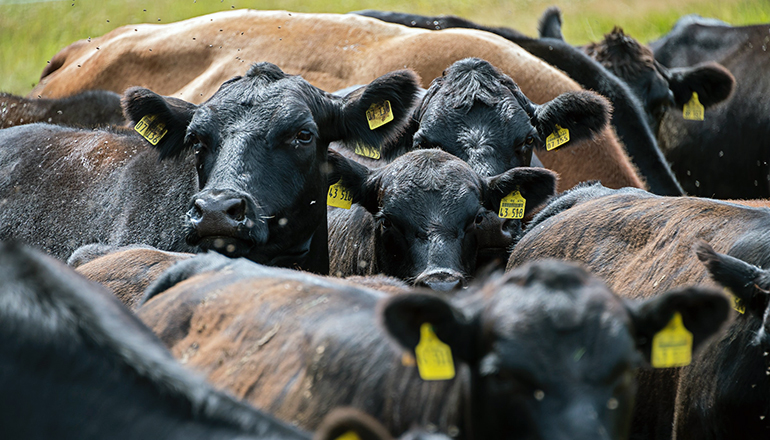(Missourinet) – The extreme heat and humidity are taking a toll on Missouri’s farmers and ranchers, leading to increased livestock sell-offs and slaughter.
Daniel Mallory, a livestock specialist for MU Extension, said that if humans are struggling with the heat, cattle are too. “The temperature at which animals become stressed is actually a lot lower—65 degrees for dairy cattle,” Mallory explained. “Consider an animal that weighs anywhere from 1,400 to 1,800 pounds and has a stomach the size of a 55-gallon drum. While it’s digesting food, it’s generating even more heat.”
Mallory also reminded farmers and ranchers that as temperatures rise, so does water consumption among livestock. During these hot conditions, animals are likely to reduce their food intake. “This will affect the rate of gain on cattle—how much the animals are consuming and how quickly they’re growing,” Mallory said. “That’s why we often see a summer slump. Various factors contribute to this, including the types of forages they are eating, which may have adverse effects.”
In addition to heat stress on livestock, Missouri is grappling with severe drought conditions. This has led to poor crop and hay yields, forcing farmers and ranchers to either sell off or slaughter their animals.
“Especially in areas experiencing D-3 level drought conditions and that haven’t received much rain this year,” said Elizabeth Picking, Field Specialist in Livestock for MU Extension. “Farmers are having to make difficult decisions, culling animals that would typically stay in the herd and are good producers, simply because there isn’t enough forage to sustain them.”
For the livestock that remain, the extreme heat has also resulted in decreased production due to heat stress.
(Photo by Etienne Girardet on Unsplash)


